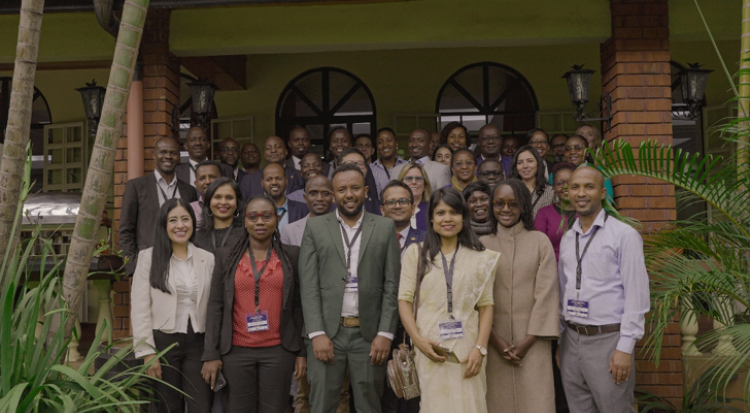Unlocking Carbon Markets for Clean Energy Access
Unlocking Carbon Markets for Clean Energy Access

Insights from the Article 6 and Standardized Crediting Framework Regional Workshop
Access to electricity and clean cooking is crucial for any successful development effort, as it is at the heart of improving education, productivity, employment, economic opportunities, and resilience to climate impacts. What is missing, however, is the financing needed to achieve these goals. Carbon Finance and Results-Based Climate Finance (RBCF), which pays for emission reductions after they are achieved, offer significant potential to help bridge this financing gap. These mechanisms can generate additional revenue, incentivizing countries to decarbonize their economies and meet their Nationally Determined Contributions (NDCs). The rapidly evolving carbon market ecosystem, however, is complex, with numerous rules, requirements, players, and priorities.
Article 6 and Standardized Crediting Framework Implementation Regional Workshop and Knowledge Exchange Event
In collaboration with the Government of Kenya, World Bank’s Carbon Initiative for Development (Ci-Dev) recently convened a regional workshop to generate a space for cross-country learning and capacity building. The purpose of the workshop was to discuss the important aspects of Article 6 operationalization and the supportive role of the Standard Crediting Framework (SCF) in facilitating countries' access to carbon markets and Results-Based Climate Financing (RBCF) opportunities. Article 6 of the Paris Agreement establishes mechanisms for international cooperation in achieving climate goals through carbon markets. The Carbon Initiative for Development Trust Fund’s (Ci-Dev) Standard Crediting Framework (SCF) complements this by providing an Article 6-aligned, country-owned emissions reduction crediting framework. This framework enables countries to shape and test national eligibility rules, processes, and governance schemes.
Attended by 30 government and private sector representatives from Bangladesh, Ethiopia, Kenya, Rwanda, and Uganda, the event provided a platform for networking and knowledge exchange. It highlighted the benefits of Article 6 operationalization and a nationally managed crediting framework, such as the SCF, for bilateral transactions.
Insights and Reflections
- Regulations and Capacity Building: Strategies were identified to manage the risk of overselling carbon credits, which could lead to countries missing their NDC targets. Ensuring high integrity and NDC compliance in alignment with Article 6 was a key focus. Insights were shared on how countries can better assess opportunities arising from Article 6 while addressing the overselling risks that could jeopardize their NDC goals. The workshop underscored the importance of capacity building not only within government institutions but also among stakeholders, including the private sector and NGOs.
- Private Sector Partnership: The private sector's role in driving climate action was highlighted through examples such as Ethiopia’s Off-grid Energy program and Kenya’s micro-hydro program, which demonstrate the potential for unlocking climate finance opportunities. An example from Ethiopia showed how the national development bank provided credit lines to small and medium enterprises to distribute off-grid lanterns and solar home systems. Additionally, the bank utilized carbon revenue to fund maintenance and repairs, ensuring the longevity of these sustainable solutions.
- Need for Pilot Projects and Enhanced Coordination: Support for piloting Article 6 projects to test regulatory frameworks and build capacity is critical. Enhanced coordination among stakeholders, including government agencies and the energy sector, is essential for the successful implementation of Article 6 initiatives. Insights gained from other countries' experiences are valuable in shaping national approaches to coordination and implementation.
Given the challenges and opportunities in this space, participants agreed on the value of Ci-Dev’s support in aligning solutions with country needs, mobilizing resources, and developing capabilities to become carbon market ready. As the event concluded, Jennifer Sara, the Global Director for Climate Change at the World Bank, emphasized the World Bank’s commitment, stating, “We are here to support countries in delivering their development objectives in a way that aligns with the goals of the Paris Agreement, achieving a low emissions trajectory and incorporating adaptation, which is fundamental for the development of any country or community.”
Standardized Crediting Framework Regional Workshop and Knowledge Exchange Event, 9-10 May 2024, Nairobi, Kenya. Copyright: World Bank / Trans.Lieu
